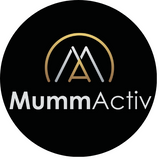
So you are off to the Hospital to deliver you baby… what are the essential items to pack into the bag?
Packing your pregnancy bag is a job you will either do too early or too late. It's never too early to gather together all the essentials you'll need during labour and birth, and for after your baby is born. Even if you're not planning to have your baby in a hospital or birth centre, you may need to go in unexpectedly, so try to have a bag packed by the time you're about 36 weeks pregnant.
Create a checklist and get ticking :)
What Mum needs for her hospital pregnancy bag:
- Maternity bras
- Nighties including an old one or a large t-shirt to wear in labour. It will probably get a bit messy, so don't buy anything special or tight to wear in hospital.
- Dressing gown. This will be useful if you end up pacing hospital corridors in early labour. You'll probably also want one on the postnatal ward. Hospitals can be very warm, so a lightweight one may be better. A dark colour or busy pattern will help hide any stains.
- Casual day clothes: include a pair of leggings that have supportive belly band with non intrusive seams. It helps with the repair of this area.
- Slippers/shoes: Backless slippers that are easy to get on and off. Thongs work well, too.
- Breast pads
- Maternity pads plus lots and lots of undies
- Heat packs. Many hospitals have a limited number of heat packs but are happy for you to bring your own. Check first, though, that your hospital allows microwaved heat packs (some have banned them), and has a microwave available so you can heat the packs.
- Toothbrush, Toothpaste, Makeup, Hairbrush, Deodorant, Shampoo, Conditioner plus Hairbands, clips or a headband. If you have long hair, you may want it tied up or clipped back. And if your hair is shorter, you can keep it off your face with a soft headband especially during labour.
- Lip balm: your lips can dry out quickly on a warm labour ward and from the air conditioner on the ward.
- Any medications you have been taking (please bring the medication to the hospital to show your admitting doctor and arrange for this medication to be returned home)
- Your Medicare card, details of your health insurance (if you have private insurance) and any hospital paperwork you need. Your birth plan (if you have one) and antenatal card, if you were given one.
- Storage containers for glasses, contact lenses, hearing aids, or dentures. Note that your glasses may fog up when you're in the throes of labour, and you won’t be able to wear contacts if you're having a caesarean.
- Things to help you relax or pass the time, such as books, magazines, games, knitting or a tablet. You may also want to download some fun and distracting apps on your phone to keep you occupied during early labour.
- Music device, Phone and charger
- Snacks and drinks for during and after the birth. Most women are able to eat and drink during labour and those early few days of breastfeeding when you can eat anything in sight. The hospital will have food and drink available, but you may prefer to pack a few things that you know you like. Great ideas are: Fruit, unsalted nuts, chips, muesli bars, honey sandwiches or and popcorn are all good options.
Some optional extras depending on the type of birth and/or what you have put into your birthing plan:
- Massage oil or lotion if you'd like to be massaged during labour. You may also like to borrow or invest in a massage roller or similar aid, so your birth partner can massage you for longer.
- Birth ball. This can help you find different positions of labour, and may also help you manage the pain of contractions. Check whether the hospital has the right size for you. If not, take your own. Remember to bring a pump so your birth partner can inflate it for you.
- Oil burner, if you'd like to use aromatherapy oils. Check with your hospital because most have won't allow open flames, but you may be able to use an electric burner.
What baby needs:
- Baby clothes and a blanket to take your baby home in
- Newborn nappies and extra wipes (especially if you like a certain variety)
- Dummy or pacifier if you choose to use one
- Formula, bottles, teats and sterilising equipment, if you plan to formula feed
- Olive, apricot, almond oil for coating baby's bottom before the first nappy goes to make cleaning easier









